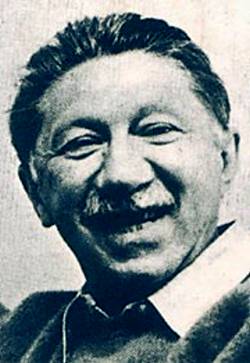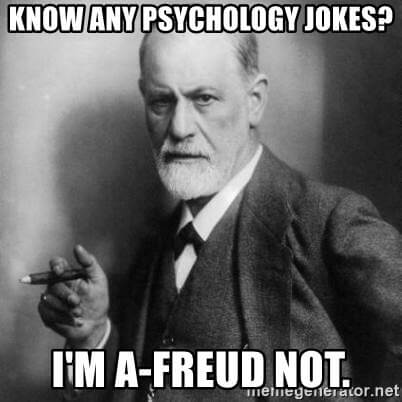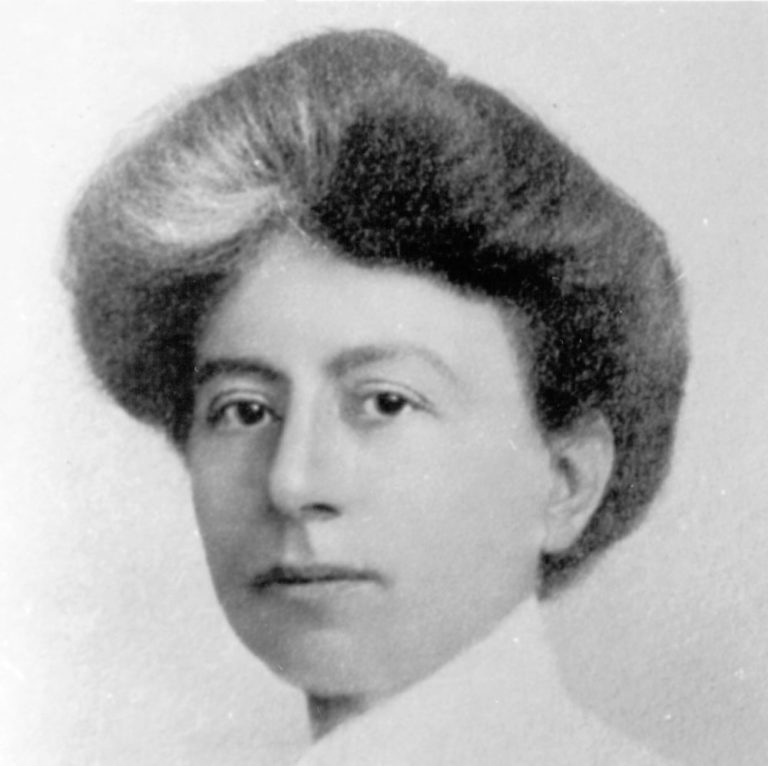20 Famous Psychologists and Their Theories
From Freud to Skinner, meet the famous psychologists whose groundbreaking ideas transformed our understanding of the mind and behavior.
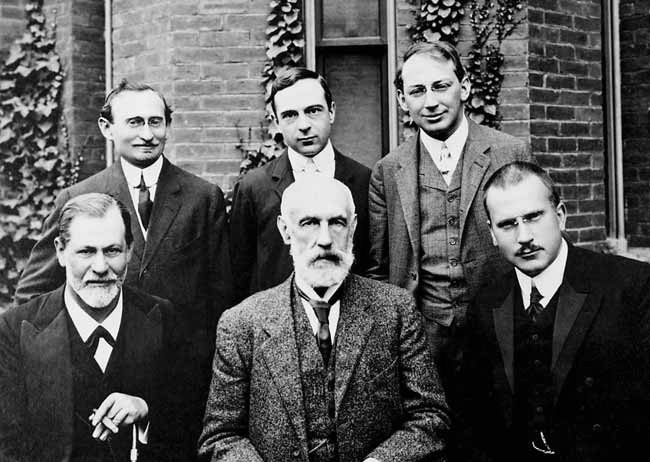
Some of the most well-known psychologists in history have played a key role in shaping our understanding of the human mind and behavior. Many of them were also philosophers, educators, and therapists, contributing to multiple areas of study. Some introduced theories that are considered controversial, but their ideas have had a lasting influence on the field of psychology.
These psychologists helped us better understand how people think, feel, and act, contributing to our academic knowledge and leading to new theories and methods in mental health treatment.
Explore the lives, ideas, and major contributions of these influential figures who helped define psychology as we know it today.
The following are just some of the eminent thinkers who have contributed to our modern understanding of the human mind and behavior.
B. F. Skinner (1904-1990)
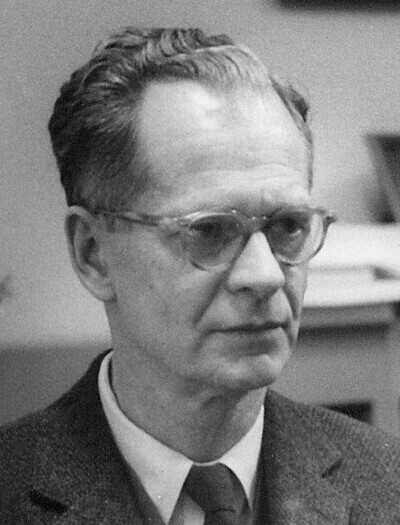
Important Contributions:
- Behaviorism
- Operant Conditioning
B. F. Skinner was a psychologist who developed the theory of operant conditioning. Inspired by Pavlov and Watson, his experiments revealed that reinforcement and punishment could be used to either increase or decrease the occurrence of a behavior.
He was one of the most important figures in the school of thought known as behaviorism. Behaviorism suggests that all behavior can be understood in terms of conditioning processes.
In one survey of psychologists, Skinner was identified as the most influential psychologist of the 20th century.
Wilhelm Wundt (1832-1920)
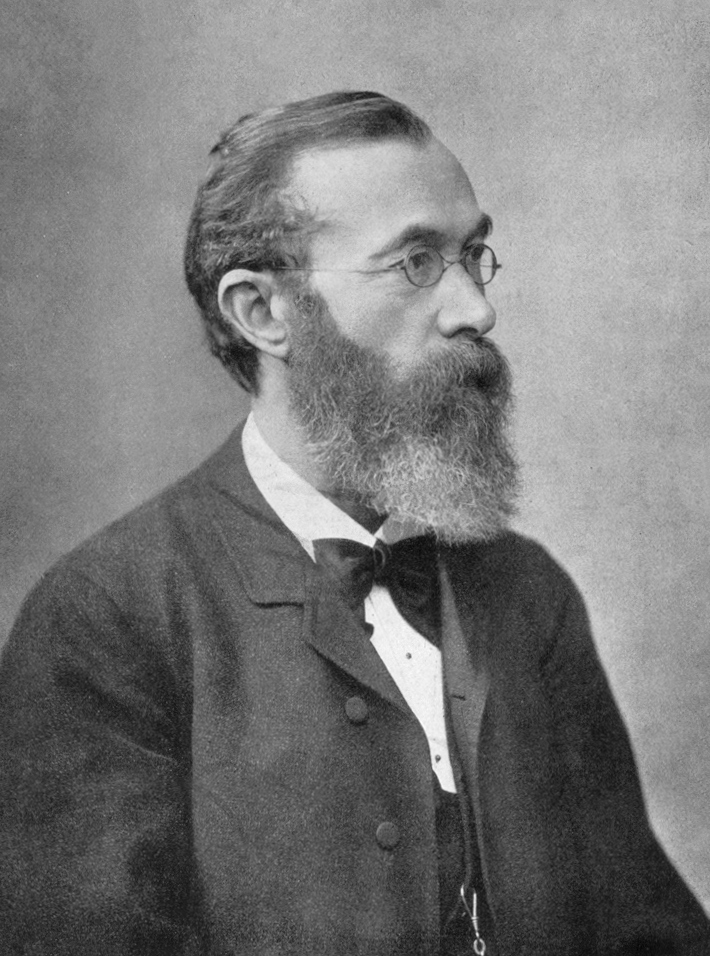
Important Contributions
- Structuralism
- Introspection
- Experimental Psychology
If you’ve ever taken an introductory psychology class, you probably have spent at least a little time learning about Wilhelm Wundt. This German psychologist, physician, and philosopher, is best known for establishing the first psychology lab in Leipzig, Germany, officially marking the beginning of psychology as a field of science distinct from philosophy and physiology.
In addition to being considered one of the founders of contemporary psychology, Wundt is also frequently referred to as the father of experimental psychology.
Originally a professor of physiology, Wundt wanted to apply the same experimental methods used in science to the study of the human mind. Wundt also influenced his students, including Edward Titchener, who established a school of thought known as structuralism. Structuralism focused on studying human consciousness by breaking it down to the smallest possible elements.
Alfred Adler (1870-1937)
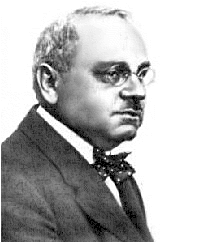
Important Contributions
- Inferiority Complex
- Belongingness
- Individual Psychology
Alfred Alder was an Austrian psychiatrist who is often considered one of the most influential thinkers in psychology. He became one of the most prominent members of the Vienna Psychoanalytic Society after Sigmund Freud extended an invitation, but he later became the first major figures to break away from Freud’s ideas.
Adler developed a perspective that he called Individual Psychology. Adler influenced other psychologists, including Karen Horney, Carl Rogers, and Abraham Maslow.
William James (1842-1910)
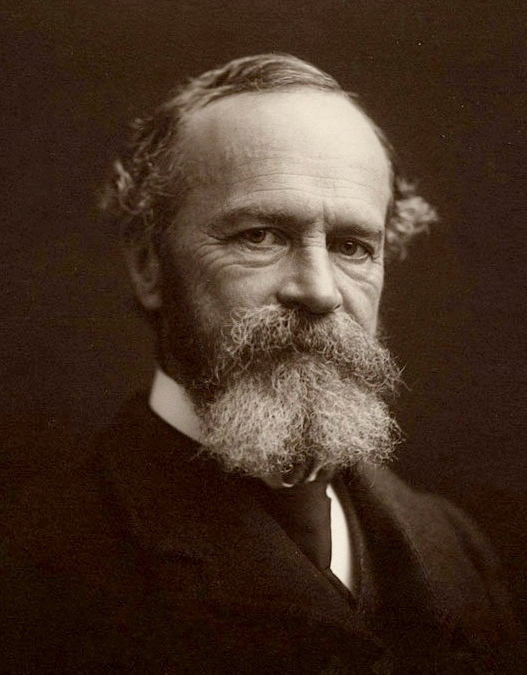
Important Contributions
- Functionalism
- Pragmatism
- Radical Empiricism
The philosopher and psychologist William James is widely regarded as the father of American psychology. Among his famous accomplishments was the publication of the 1200-page text, The Principles of Psychology, which quickly became a classic.
Thanks to his teachings and writings, he helped establish psychology as a science. James also contributed to functionalism and pragmatism and influenced many psychology students during his 35-year teaching career.
Edward Thorndike (1874-1949)
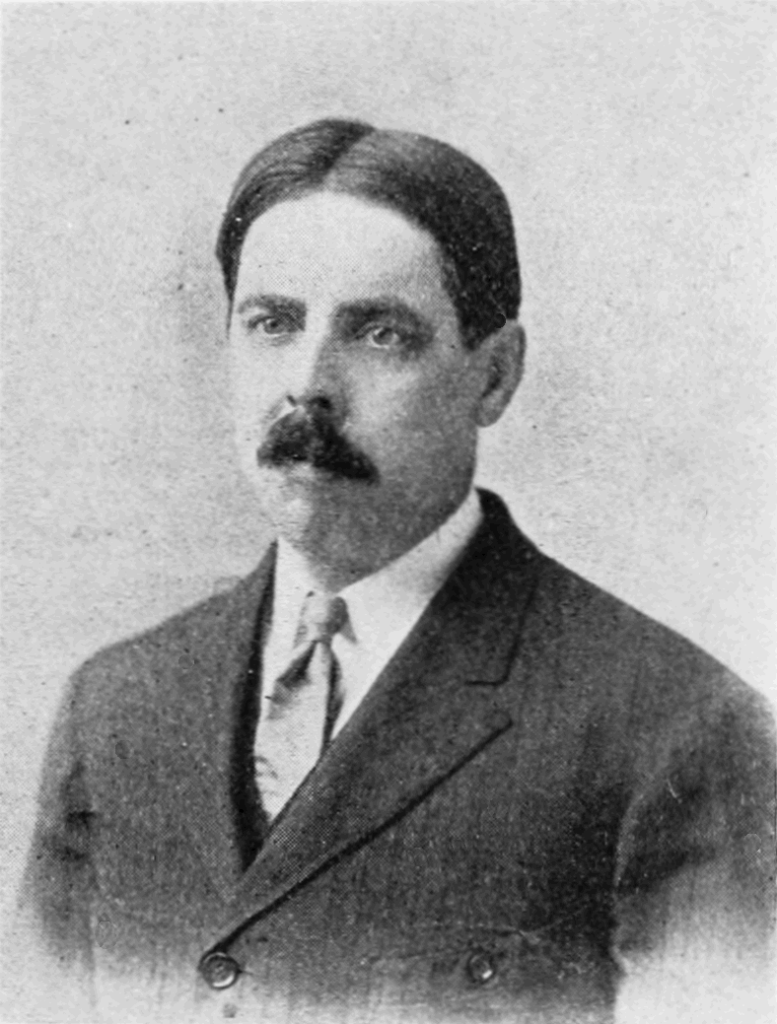
Important Contributions
- Law of Effect
- Behavioral Modification
- Educational Psychology
Edward Thorndike was an American psychologist associated with the school of thought known as functionalism and other thinkers, including Harvey Carr, James Rowland Angell, and John Dewey. Thorndike is often called the father of modern-day educational psychology and published several important texts on the subject.
His accomplishments included being elected president of the American Psychological Association in 1912. In 1917, he was also one of the first psychologists to become a member of the National Academy of Sciences. Thorndike is also well-known for his puzzle box experiments with cats, his concept of the law of effect, and his contributions to educational psychology.
Sigmund Freud (1856-1939)
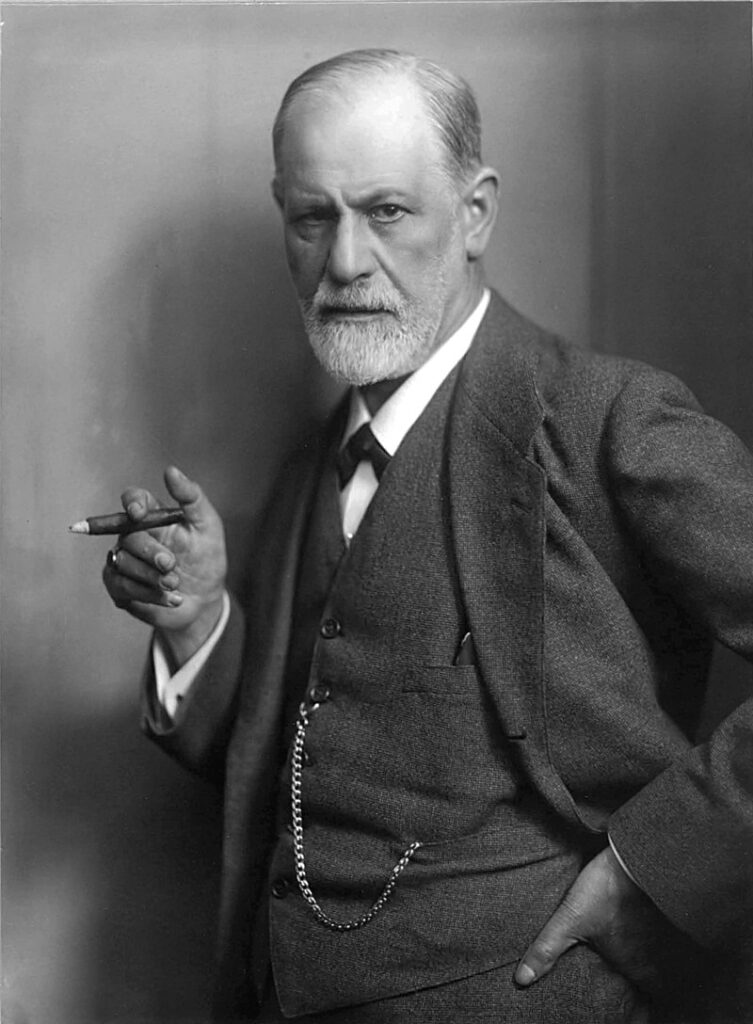
Important Contributions
- Psychoanalysis
- Id, Ego, Superego
- Unconscious and Conscious Mind
- Oedipus Complex
- Life and Death Instincts
- Repression
No list of famous psychologists would be complete without an appearance by the eminent Sigmund Freud. Freud is often identified as one of psychology’s most famous theorists, but also seen as one of the most notorious.
While his ideas were often controversial, his concept of the unconscious mind has had a deep and lasting influence on psychology. His work gave rise to the field of psychoanalysis, which continues to be used in various forms as a treatment method to this day. Other important theories he introduced include the id, the ego, the superego, psychosexual development, and death instincts.
Hugo Münsterberg (1863-1916)
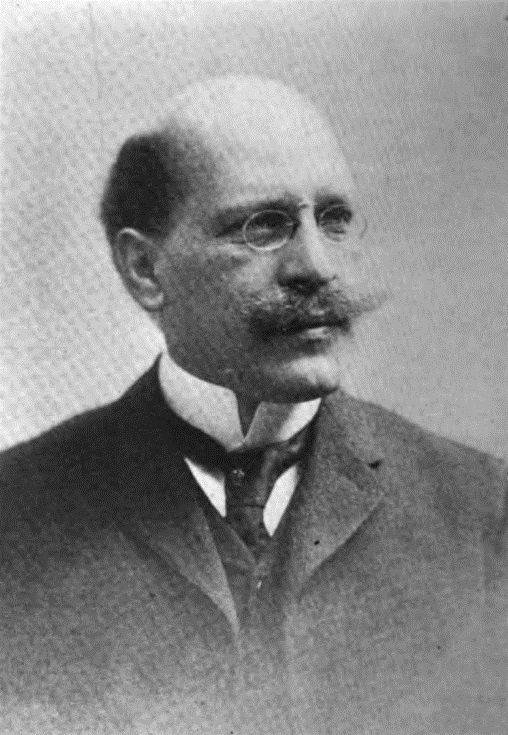
Important Contributions
- Applied Psychology
- Forensic Psychology
Hugo Münsterberg was a German psychologist and early pioneer of applied fields, including industrial-organizational, forensic, and clinical psychology. Münsterberg was studying medicine, but after meeting Wilhelm Wundt, he turned his interest to the field of psychology.
William James later invited Münsterberg to take over the psychology lab at Harvard University, where he remained for three years before returning to Europe. He also served as the president of the American Psychological Association and taught many other prominent psychologists, including Mary Whiton Calkins and Edward C. Tolman.
Münsterberg died on December 16, 1916 after suffering a massive cerebral hemorrhage right before he was set to deliver the opening remarks of a lecture at Harvard’s Radcliffe Institute for Advanced Study.
James McKeen Cattell (1860-1944)
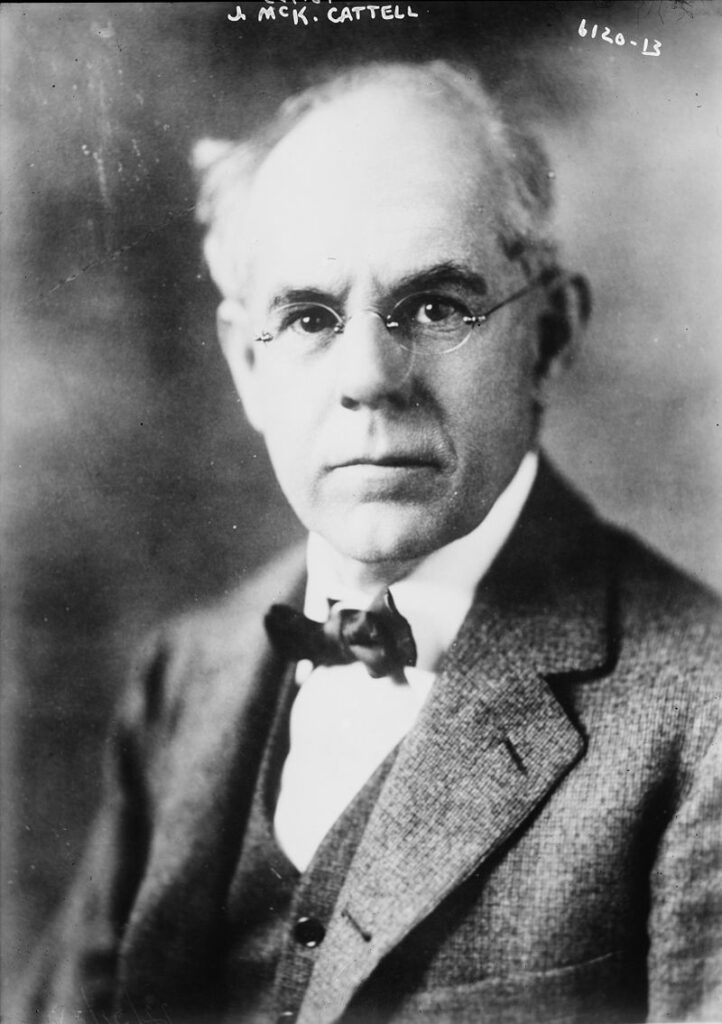
Important Contributions
- Scientific Psychology
James McKeen Catell helped establish psychology as a legitimate science and became the first psychology professor in the United States. Cattell started out studying English literature but developed an interest in psychology after meeting German psychologist Wilhelm Wundt. Cattell traveled to Germany to become Wundt’s assistant and later published the first psychology dissertation by an American.
After returning to the U.S., Cattell held several teaching positions and was influential in forming several major publications, including The Journal of Science and The Psychological Review. In addition to helping advance psychology in the United States, Cattell also influenced other prominent psychologists, including Edward L. Thorndike.
Mary Whiton Calkins (1863-1930)
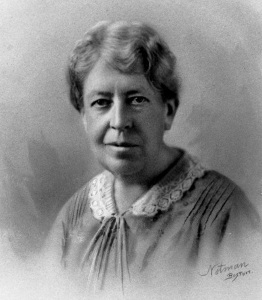
Important Contributions
- First Woman President of the APA
- Self-Psychology
- Paired-Association Technique
Mary Whiton Calkins is perhaps best known as the first woman president of the American Psychological Association, but she also made many more contributions to the field. Her experiences represent the difficulty and discrimination faced by many women in the early days of psychology.
Despite fulfilling the requirements of a doctoral degree and receiving unanimous approval from a thesis committee that included William James, Josiah Royce, and Hugo Munsterberg, Harvard refused to grant Calkins her degree because she was a woman.
Regardless, Calkins went on to have a successful and influential career in psychology. She invented the paired-associate technique, contributed to dream research, advocated self-psychology, and wrote more than 100 professional papers on topics in both psychology and philosophy.
Mamie Phipps Clark (1917-1983)
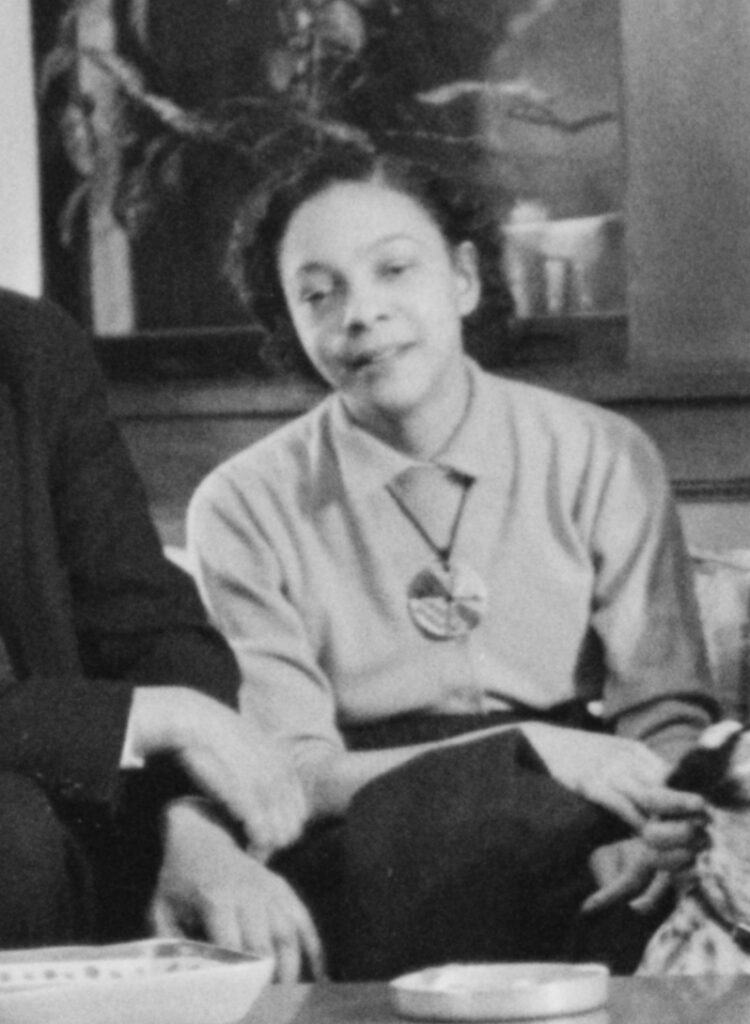
Important Contributions
- Research on Race
- Research on the Effects of Segregation
Mamie Phipps Clark was a pioneering female psychologist known for her important research on race and self-concept. Her work with her husband, psychologist Kenneth Clark, played a pivotal role in the Supreme Court’s ruling that segregation was unconstitutional in the famous Brown vs. the Board of Education case.
While she is often overlooked or mentioned only in passing in psychology textbooks, her contributions to psychology are simply too important to ignore.
Anna Freud (1895-1982)
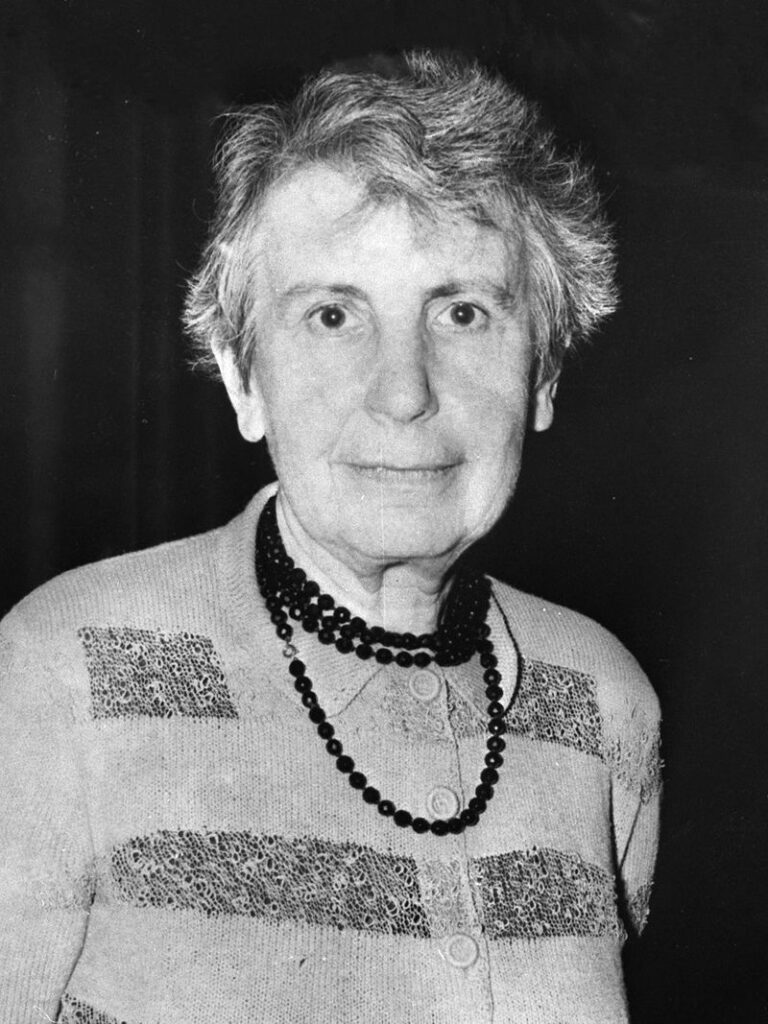
Important Contributions
- Defense Mechanisms
- Child Psychoanalysis
Anna Freud was the youngest of Sigmund Freud’s six children. While she began her career influenced by her father’s theories, she was far from living in his father’s shadow. She made significant contributions of her own to psychology, including founding child psychoanalysis, and summarizing the ego’s defense mechanisms in her book The Ego and the Mechanisms of Defense (1936).
Lev Vygotsky (1896-1934)
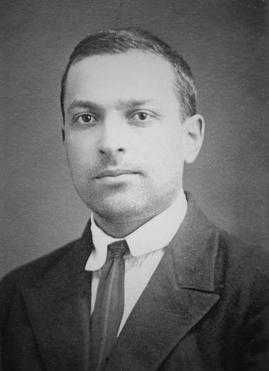
Important Contributions
- The Zone of Proximal Development
- More Knowledgeable Other
- Sociocultural Theory
- Scaffolding
Lev Vygotsky has only become one of the most famous psychologists in recent years. He is considered a seminal thinker in psychology, and much of his work is still being discovered and explored today.
While he was a contemporary of Skinner, Pavlov, Freud, and Piaget, his work never attained their level of eminence during his lifetime. Part of this was because his work was often criticized by the Communist Party in Russia, and so his writings were largely inaccessible to the Western world. His premature death at age 37 also contributed to his obscurity.
Despite this, his work has continued to grow in influence since his death, particularly in the fields of developmental psychology and educational psychology. He is best known for his sociocultural theory and concepts of the zone of proximal development and guided practice.
John Bowlby (1907-1990)
Important Contributions
- Attachment Theory
John Bowlby was a British psychologist perhaps best known for developing attachment theory. His research on attachment and child development left a lasting impression on psychology, education, child care, and parenting.
Researchers extended his research to develop clinical treatment techniques and prevention strategies. His work also influenced other eminent psychologists, including his colleague Mary Ainsworth, who made major contributions to attachment theory.
Harry Harlow (1905-1981)
Important Contributions
- Maternal Deprivation
- Social Isolation
- Monkey Studies
American psychologist Harry Harlow is known for his infamous social isolation research on rhesus monkeys during the late 1950s and early 1960s. At his primate lab located at the University of Wisconsin-Madison, Harlow performed a series of psychological experiments in which infant monkeys were raised by surrogate “mothers.”
In different variations of the experiments, some of the mother monkeys were made entirely of wire, while others were covered in a soft terrycloth. At the time, some researchers suggested feeding was the force behind the mother-child bond. The main idea behind this was that children love their caregivers because they provide food.
Harlow and his fellow researchers found that contact comfort was the vital factor underlying an infant’s love for its mother. The infant monkeys in Harlow’s experiments preferred the soft terrycloth mothers over the wire mothers, even when the latter served as the source of food.
Harlow’s experiments played an important role in changing our understanding of attachment but were also extremely controversial. The experiments were shocking and cruel, particularly his later experiments that involved placing young monkeys in total social isolation.
Most of his experiments are considered unethical by today’s standards, and the nature of his research contributed to concern and ethical regulations over how laboratory animals are treated.
Stanley Milgram (1933-1984)
Important Contributions
- Obedience Experiments
Stanley Milgram’s name is forever associated with his famous obedience experiment that demonstrated how far people would go to obey an authority figure. During his graduate years, he had spent some time working as a research assistant for psychologist Solomon Asch. As you might remember, Asch conducted a series of experiments that demonstrated how people conform in social groups.
The research helped spark an interest in obedience and conformity, ultimately leading Milgram to perform his controversial experiment.
Milgram and psychologist Philip Zimbardo (of the Stanford Prison Experiment fame) were high school classmates.
Raymond Cattell (1905-1998)
Important Contributions
- 16 Personality Factors
- Fluid and Crystallized Intelligence
Raymond Cattell was an American psychologist whose work influenced psychology in many ways. Not only did he introduce the concepts of fluid and crystallized intelligence, he is also well-known for his 16-factor model of personality.
Perhaps his greatest achievement was his work pioneering factor analysis and multivariate analysis. In one 2002 review, Cattell was ranked as the 16th most eminent psychologist of the 20th century.
Edward B. Titchener (1867-1927)
Important Contributions
- Introspection
- Structuralism
- Attention
Edward B. Titchener was an influential figure in the formative years of psychology. As one of Wundt’s students, Titchener is perhaps best remembered for establishing the school of thought known as structuralism. This early viewpoint in psychology focused on breaking down human consciousness into the smallest possible elements.
Researchers utilized a method known as introspection, which involved having trained observers describe the mental processes that occurred when they were presented with different stimuli.
Titchener is also known for coining the term empathy and supervising the graduate studies of Margaret Floy Washburn, the first woman to earn a Ph.D. in Psychology. While Titchener served as a powerful force in psychology, the school of thought he helped establish did not survive long following his death in 1927.
Clark L. Hull (1884-1952)
Important Contributions
- Drive Theory of Motivation
- Goal Gradient
Despite facing considerable adversity, Clark Leonard Hull managed to overcome struggles with his health and finances to become one of the most important American psychologists of the 20th century. His early life was marked by bouts of illness, including a severe case of typhoid fever.
After polio left him paralyzed in his left leg, Hull decided to switch his career ambitions from engineering to psychology. While he found it necessary to halt his education several times due to a lack of money, he eventually earned his Ph.D. and embarked on a long career as a teacher and researcher.
Hull is best remembered for his influence on behaviorism and his drive-reduction theory, but is also notable for his research on hypnosis and his emphasis on rigorous scientific methods.
George Kelly (1905-1967)
Important Contributions
- Cognitive Clinical Psychology
- Personal Construct Theory
George Kelly grew up poor and never actually graduated high school. Despite those obstacles, he went on to earn a doctorate in psychology and become an influential personality theorist. During the Great Depression, he set out to do something useful with his skills and started a traveling clinic that offered psychological services to people throughout his home state of Kansas.
During this time, he also formulated his personal construct theory of personality. According to Kelly, the differences between people result from the differing ways they interpret and predict events in the world around them. He believed that we act much like scientists, forming hypotheses and conducting “experiments” to test our ideas about the world.
Ivan Pavlov (1849-1936)
Important Contributions
- Classical Conditioning
- Conditioned Reflexes
Ivan Pavlov had a major influence on psychology and is usually included in lists of famous psychologists, yet he wasn’t a psychologist at all. Pavlov was a Russian physiologist whose research on conditioned reflexes influenced the rise of behaviorism in psychology. His most famous contribution was his discovery of classical conditioning, which plays a major role in our understanding of psychology and behavior today.
Pavlov’s work played an integral role in making psychology a more scientifically rigorous discipline.
How Did Theorists Define Psychology?
Many of the best-known thinkers in psychology approach the subject in different ways.
- Wilhelm Wundt defined psychology as the study of conscious experience.
William James defined it as the science of mental life. - John B. Watson famously defined psychology as the science of observable behavior.
- Sigmund Freud defined psychology as the exploration of the unconscious desires, wishes, and conflicts that affect thoughts and behaviors.
- Carl Rogers defined psychology from a humanist perspective, emphasizing the importance of free-will, personal growth, and self-actualization.
The 100 Most Influential Psychologists
Who were the most influential psychologists of the 20th century? One survey ranked them as follows:
- B.F. Skinner
- Jean Piaget
- Sigmund Freud
- Albert Bandura
- Leon Festinger
- Carl R. Rogers
- Stanley Schachter
- Neal E. Miller
- Edward Thorndike
- A.H. Maslow
- Gordon W. Allport
- Erik H. Erikson
- Hans J. Eysenck
- William James
- David C. McClelland
- Raymond B. Cattell
- John B. Watson
- Kurt Lewin
- Donald O. Hebb
- George A. Miller
- Clark L. Hull
- Jerome Kagan
- Carl G. Jung
- Ivan P. Pavlov
- Walter Mischel
- Harry F. Harlow
- J.P. Guilford
- Jerome S. Bruner
- Ernest R. Hilgard
- Lawrence Kohlberg
- Martin E.P. Seligman
- Ulric Neisser
- Donald T. Campbell
- Roger Brown
- R.B. Zajonc
- Endel Tulving
- Herbert A. Simon
- Noam Chomsky
- Edward E. Jones
- Charles E. Osgood
- Solomon E. Asch
- Gordon H. Bower
- Harold H. Kelley
- Roger W. Sperry
- Edward C. Tolman
- Stanley Milgram
- Arthur R. Jensen
- Lee J. Cronbach
- John Bowlby
- Wolfgang Köhler
- David Wechsler
- S.S. Stevens
- Joseph Wolpe
- D.E. Broadbent
- Roger N. Shepard
- Michael I. Posner
- Theodore M. Newcomb
- Elizabeth F. Loftus
- Paul Ekman
- Robert J. Sternberg
- Karl S. Lashley
- Kenneth Spence
- Morton Deutsch
- Julian B. Rotter
- Konrad Lorenz
- Benton Underwood
- Alfred Adler
- Michael Rutter
- Alexander R. Luria
- Eleanor E. Maccoby
- Robert Plomin
- G. Stanley Hall
- Lewis M. Terman
- Eleanor J. Gibson
- Paul E. Meehl
- Leonard Berkowitz
- William K. Estes
- Eliot Aronson
- Irving L. Janis
- Richard S. Lazarus
- W. Gary Cannon
- Allen L. Edwards
- Lev Semenovich Vygotsky
- Robert Rosenthal
- Milton Rokeach
- John Garcia
- James J. Gibson
- David Rumelhart
- L.L. Thurston
- Margaret Washburn
- Robert Woodworth
- Edwin G. Boring
- John Dewey
- Amos Tversky
- Wilhelm Wundt
- Herman A. Witkin
- Mary D. Ainsworth
- Orval Hobart Mowrer
- Anna Freud
The list intentially left the final spot, number 100, blank in order for readers to make their own case for who should have been included on the list.
Reasons to Study Psychology Theorists
Studying the lives and theories of famous psychologists isn’t just important for understanding the history of psychology, it can also give insights into how the field got where it is today.
- Foundations of contemporary thought: Famous psychologists like Freud, Piaget, and Jung help lay the groundwork for many modern concepts. While their theories haven’t always stood the test of time, understanding their work can give us insights into how other theories emerged from those ideas.
- Historical development: Learning more about past thinkers can help us better appreciate the historical development of psychological thought.
- Inspiring further research: Looking to the past can be a way to find inspiration for future research.
Summary
This list represents just a sampling of some of the famous psychologists who have had a major impact on the field. In addition to historical figures, contemporary psychologists continue to leave their mark on the science of psychology.
Sources:
Haggbloom SJ, Warnick R, Warnick JE, et al. The 100 most eminent psychologists of the 20th century. Review of General Psychology. 2002;6(2):139-152. doi:10.1037/1089-2680.6.2.139
